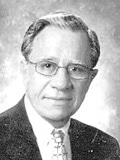
More Mental Health Articles
Minimally Invasive Treatment of BPH
Throughout a mans life, his prostate may grow and start to cause problems as he ages. For many years, a prostatectomy was the only treatment for this very common problem. Although effective, such major surgery requires patients to spend significant time in the hospital and at home in recovery. Fortunately, todays technological advances now provide urologists with an array of minimally invasive techniques to treat BPH.
What is BPH?
Benign prostatic hyperplasia (BPH), previously referred to as prostatism, is a common urological condition caused by the non-cancerous enlargement of the prostate gland in aging men. Risk factors for developing BPH include increasing age and a family history of BPH.
Since the prostate surrounds the urethra just below the bladder, its enlargement can result in symptoms that irritate or obstruct the bladder. A common symptom is the need to frequently empty the bladder, especially at night. Other symptoms include difficulty in starting the urine flow or dribbling after urination ends. Also, size and strength of the urine stream may decrease.
TUNA
Transurethral radio frequency needle ablation of the prostate (TUNA) is one minimally invasive way to treat BPH. The procedure involves anesthesia and medications to make the patient sleepy. The technology involves heating of tissue using radio frequency energy transmitted by needles inserted directly into the prostate. High frequency radiowaves heat the prostate up to very high temperatures. The heated prostate tissue is destroyed and initially swells but then shrinks. Most men require a catheter for a period of time after this procedure. Advantages in the use of TUNA include the limited anesthesia required, the ability to perform the procedure in an office setting, and avoidance of serious complications sometimes associated with other procedures.
If you or someone you love is suffering from the symptoms of BPH, schedule an appointment with a urologist. Todays technology has enabled us to provide effective treatments with minimal side effects and rapid recovery times.
Other Articles You May Find of Interest...
- The Challenges of Being an LGBTQ+ Parent
- Embracing Healing: Navigating the Emotional and Physical Journey of Mastectomy Recovery
- Understanding the Role of Support Groups in Personal Development
- Ways To Check On a ‘Mama’ In Your Life
- How to get rid of stress
- The Impact Of Mental Illness
- Healthy Mind In a Healthy Body

















